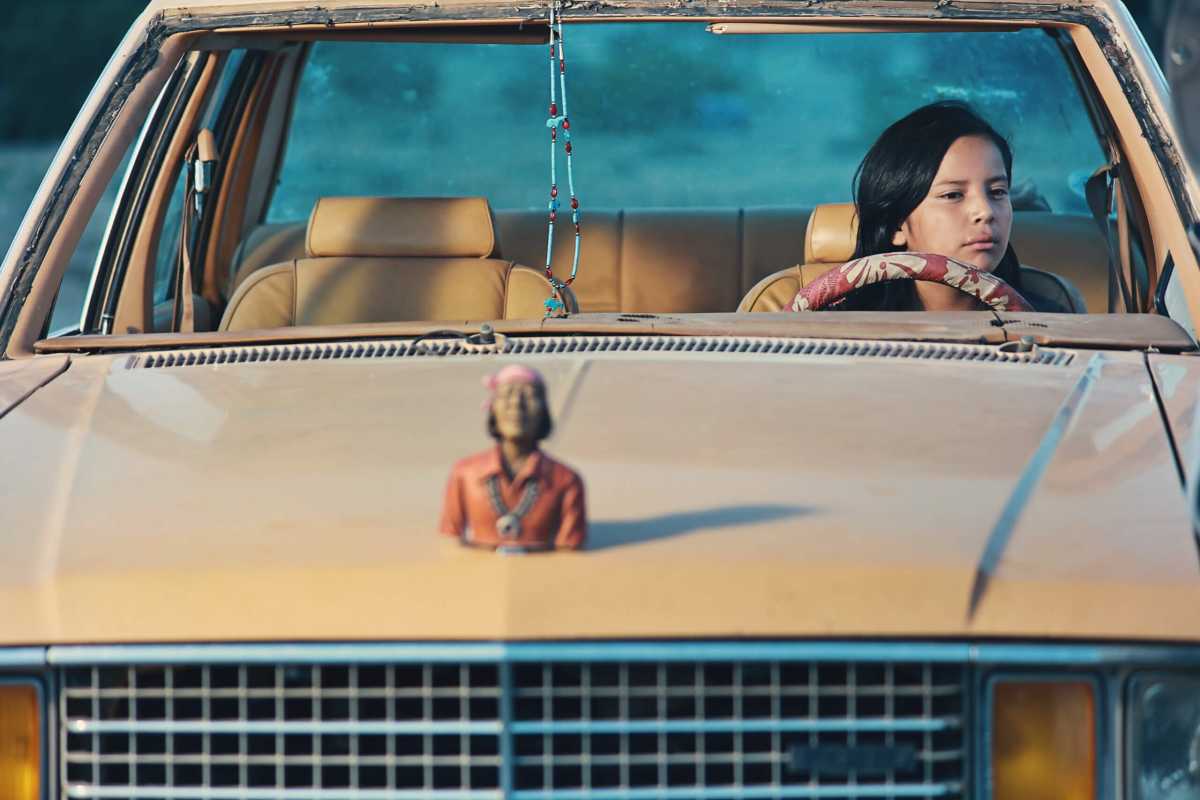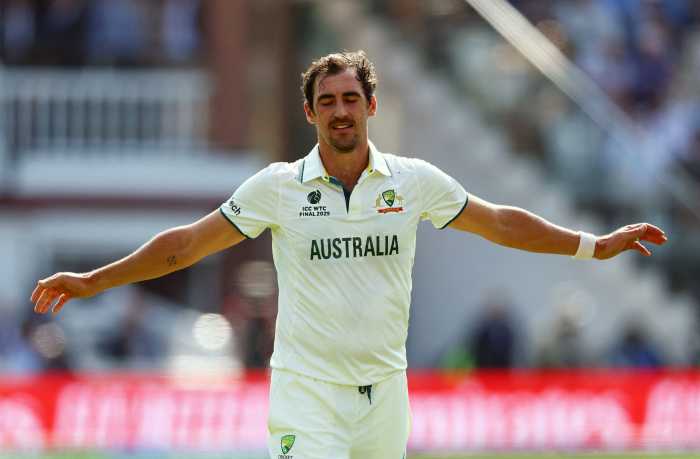Billy Luther’s “Frybread Face and Me” walks a fine line. The story of an indigenous boy’s summer on a Navajo reservation, its tone is light. In the Navajo community it shows, crime and poverty are present, but they don’t come close to defining it. Luther, who is both queer and indigenous, depicts his community with affection, trying to appeal to insiders and outsiders at once. The New Mexico desert is a dusty brown, shot in widescreen long shots, but if “Frybread Face and Me” looks like a Western, Luther, who began as a documentarian, approaches cinema from a far different perspective. Part of that distance is his relative disinterest in storytelling.
“Frybread Face and Me” takes place in 1990, when 11-year-old Benny, partially Navajo, Hopi, and Pueblo, lived with his parents in San Diego. Bookended by murky camcorder clips, its narrated by the same character as an adult. As their marriage collapses, he’s sent to a reservation. His grandmother (Sarah H. Natani) is affectionate, but she speaks to him in Navajo, which he can’t understand. (The film shares his perspective, refusing to subtitle what she says to him.) Life on the reservation consists of days spent herding sheep and building fences. His cousin Dawn (Charley Hogan), nicknamed Fryface, teases him affectionately but clearly. His uncle Marvin, who throws explicit homophobia his way, suffers an accident that makes it necessary for him to use a wheelchair.
The concept of a child learning about themselves by spending time with relatives is time-worn, as is the notion of an urbanite finding solace in the country, but “Frybread Face and Me” plays it out in terms of language. Benny can only communicate verbally with his grandmother in his dreams. Meanwhile, Dawn gives him a running lesson in their culture, all of which is new to him. Especially in the first half hour, her attempts to educate him play as though they’re also intended for the audience, but they quiet down as Benny becomes more accustomed to his surroundings.
Luther adds subtle touches of queerness to his film. Benny’s love of Stevie Nicks is an early bit of coding, and his play with male action figures, whom he treats like a couple, suggests even more. It does not please his relatives. He’s surrounded by innuendo about his sexuality. Dawn’s bluntness stops short of turning nasty, but Marvin goes much further, saying, “You’re only here because your parents want you to become a man. It doesn’t look like that’s going to happen,” before calling him a “faggot.” The film maintains a touch of ambiguity about Benny, who may be perceived as queer simply because he doesn’t come across as conventionally masculine, but one can easily put the pieces together.
For all that, “Frybread Face and Me” avoids pressing conflict to the breaking point. (Luther says “I like telling contemporary stories about our community that aren’t necessarily like a PBS documentary that hits you on the head, but something that has some history in it and is fun too.”) One can sense that there’s a political purpose behind its rejection of stereotypes about alcoholic Native Americans living in desperation. Despite the difficulties they face, the Navajo community shown here has managed to preserve its culture and transmit it to their children. The film never criticizes its characters for being steeped in pop culture created by white people, whether that be Fleetwood Mac, Reba McEntire or John Carpenter’s “Starman,” but it points far beyond it. (They watch “Starman” every night, but it’s the only videotape they own because Marvin got banned from the rental store.) When Benny says that Mick Fleetwood is the best drummer in the world, Dawn tells him he’s never been to a powwow. She plays tapes of tribal drumming and chanting on a boom box.
This story might look grimmer if it weren’t told through the perspective of a child. We can surmise from Benny’s voiceover that he turned out alright, but the film doesn’t lay out any details about him as an adult. Nevertheless, Luther based many details of Benny’s childhood upon his own. The director favors mood over plot and resists condemning any of his characters. It’s loaded with small, telling details, like a dinner of spam and potatoes served to Benny’s grandparents, rather than large story arcs. This is a film suited for long, hot summer days.
“Frybread Face and Me” | Directed by Billy Luther | ARRAY Releasing | Opens Nov. 24th at select theaters and streams on Netflix



































